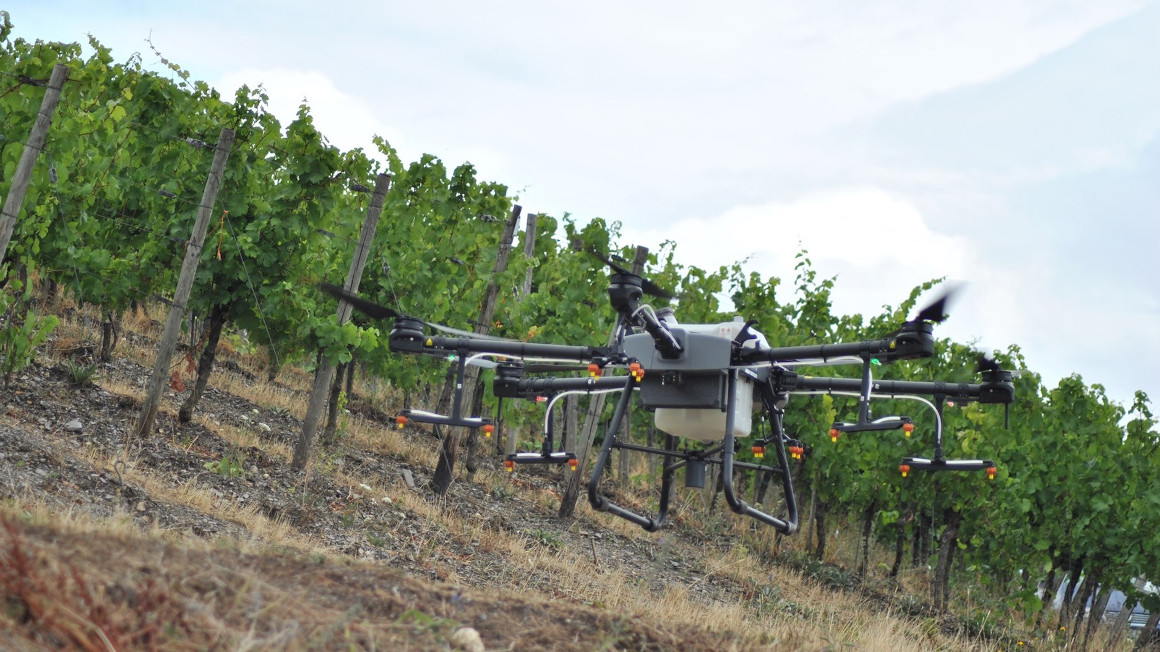Smart technologies for climate-resilient viticulture
Two innovative projects at the University of Koblenz show how technological innovations and fast 5G data transmission can make viticulture more climate-resilient and sustainable.

The agriculture of the future faces major challenges: Climate change, scarcity of resources and the need for sustainable production methods require innovative solutions. New technologies offer enormous opportunities, particularly in viticulture, a traditional industry that is heavily dependent on environmental conditions. Two pioneering projects at the University of Koblenz show how modern digital innovations and precise, data-driven approaches can make viticulture not only more efficient, but also more resilient to climate change.
Smart vineyard: precision technologies for sustainable agriculture
‘Where manual labour reaches its limits, the research and development of smart technologies is helping to support the centuries-old craft of winegrowing,’ says Claudia Quaiser-Pohl, Vice President for Research and Transfer at the University of Koblenz, at the closing event for the two projects in Cochem. Representatives from business, politics and science met here on 19 November 2024 to discuss the forward-looking results.
The Smarter Vineyard project focussed on ecological and digital solutions. The project team developed a semi-autonomous robotic platform that uses 5G technology to perform tasks such as defoliation and weed removal on steep slopes in real time. In addition, various grape varieties were tested for their resistance to heat and drought and an AI-based vineyard information management system (KIWI) was developed to help winegrowers optimise the use of fertilisers and sprays.
NoLa: Nomadic 5G networks for rural areas
In order to enable the real-time data transmission required for the project, the NoLa project (nomadic 5G networks for small rural areas) was launched in parallel. A nomadic 5G campus network system was set up in the vineyards to provide 5G network coverage. Such innovative network technologies as well as robotics and AI applications would make an important contribution to preserving the important cultural landscape and the 2,000-year-old tradition of viticulture in steep and steeply sloping vineyards on the Moselle, said Maria Wimmer, NoLa project coordinator. At the same time, the NoLa team researched a self-sufficient energy supply for the plant using hydrogen.
Added economic value for rural regions
The results of both projects, which were funded with around 5.7 million euros by the Federal Ministry for Digital and Economic Affairs and Transport, not only offer prospects for viticulture, but also for other forms of landscape utilisation in rural regions. ‘The findings from the projects on nomadic 5G campus networks and automation with the help of 5G are transferable to other areas and therefore represent an important contribution to the further development of innovation,’ explained project coordinator Wimmer.
During the lively discussion at the closing event, it became clear that sustainable viticulture makes both ecological and economic sense. Volker Wissing, Federal Minister for Digital Affairs, emphasised in his video message: The projects ‘have shown that innovation can create real added value even in the smallest structures of our economy. Above all, however, they have shown how tradition can become the future: namely with the help of state-of-the-art technologies’.
am


